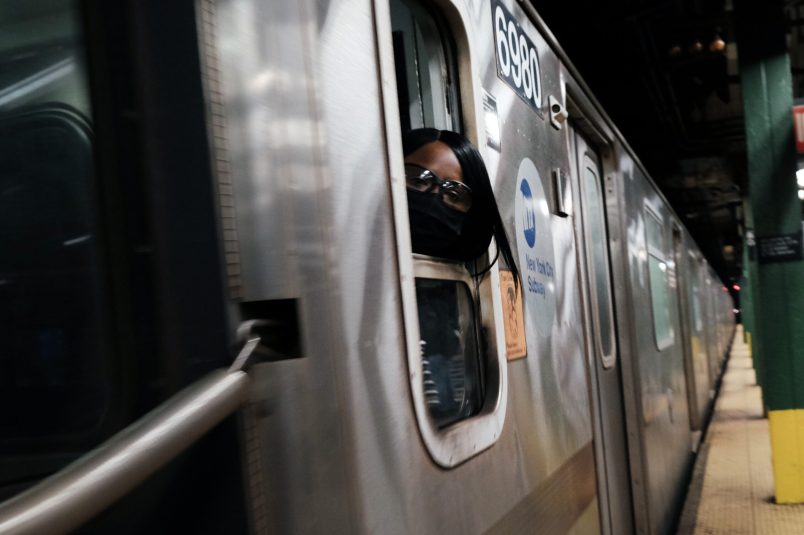The suspected shooter who fired a gun inside a New York City MTA train car in Brooklyn yesterday was arrested this afternoon after a 24 hour-plus manhunt. The man is suspected of releasing smoke grenades inside the moving train and firing a gun 33 times, shooting 10 people and injuring 29 others. None of the victims have died.
The attack roiled New York on Tuesday, the realization of a nightmare scenario in a city that relies heavily on its massive and largely underground transit system.
The attack also highlights at least one concern that Supreme Court Justices John Roberts and Elena Kagan vocalized during oral arguments last year while hearing a challenge to New York state’s gun restrictions. Allowing concealed weapons in the very dense New York City metropolitan area, they quite reasonably theorized, presents a credible threat to public safety.
The court is poised to rule on that case, New York State Rifle & Pistol Association, Inc. v. Bruen, sometime this summer. The case is a challenge backed by pro-gun groups to New York state’s current, relatively strict concealed carry laws; the state mandates that applicants for a license prove why they think they need a concealed weapon on their person. The challenge was brought by two upstate New Yorkers who were not granted unrestricted concealed carry licensees — though both of the men involved in the case were granted restricted licenses, which allow them to carry for specific purposes, like hunting, target practice and driving to and from work.
During oral arguments, state gun rights advocates and some justices suggested that the law is unconstitutional because it asks applicants to explain themselves in a manner that is not required of those seeking to use other constitutional rights, such as those outlined in the First Amendment. Court watchers have predicted that this uber-conservative Supreme Court may well strike down the law, which was adopted in New York in 1911. That, in turn, could mean more concealed weapons across the state, and, concerningly, across the city.
Roberts signaled an openness to at least considering the ramifications of overturning the law, specifically on how it might impact public safety in the city. In what turned into a “sensitive places” discussion, Roberts listed off a number of examples of situations where an expanded concealed carry law might present serious danger — university campuses, sports arenas, anywhere where alcohol is served.
Kagan backed him up: “What the Chief Justice is trying to do is figure out how those cash out in the real world. So I’ll give you a few more. New York City subways.”
There are, of course, enough conservatives on the bench to form a majority even without Roberts.
The Best Of TPM Today
Here’s what you should read this evening:
The latest from Matt Shuham: Republicans Are Targeting Voting Rights Groups With Election Laws
On Jan. 6: As He Speaks To Jan 6 Panel, Here’s A Reminder Of What Cipollone Was Up To Pre-Insurrection
Judge Lets Durham Prosecution Go Ahead, Leaving Key Question For Jury
GOP Guvs’ Anti-Immigration Theater Gets Weird With D.C. Bus Stunt
Meadows Nixed From North Carolina Voter Roll Amid Probe Into Fraud Allegations
Finkenauer Could Be Disqualified From Bid To Challenge Grassley
Sinema Promises To Stay Mavericky If BBB Talks Get Revived
Yesterday’s Most Read Story
A Tipoff By The Secret Service Blew Up The Federal Probe Of Alleged Imposter Duo — Josh Kovensky
What We Are Reading
Trump ‘authorized’ assault on Capitol, Jan. 6 defendant argues at trial — Ryan J. Reilly
Democrats Ask the IRS Why Tax Audits for the Poor Have Doubled — Laura Davison
Democrats Are Doing Basically Nothing to Counter the GOP’s ‘Pedophile’ Attacks — Cameron Joseph






